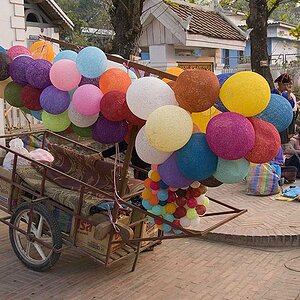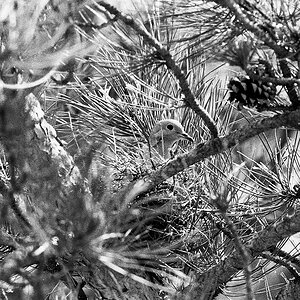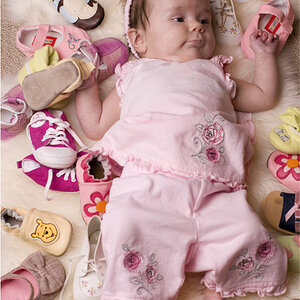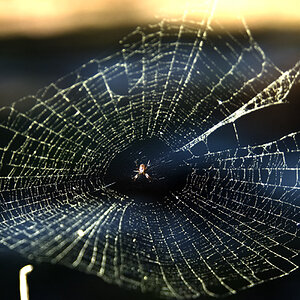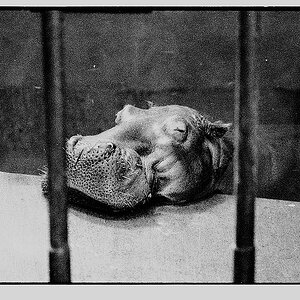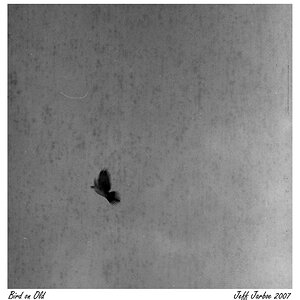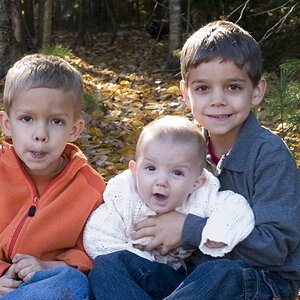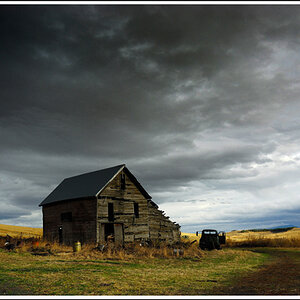I'm an amateur looking to get a 35mm SLR for a second camera. I'm trying to upgrade from a Digital Fujifilm S5000. It's a great camera, however getting to the point where I would like the capabilities of a SLR, without the 1000-3000 digital pricetag. Any advice on cameras, and if it's a good decision.
Navigation
Install the app
How to install the app on iOS
Follow along with the video below to see how to install our site as a web app on your home screen.

Note: This feature currently requires accessing the site using the built-in Safari browser.
More options
You are using an out of date browser. It may not display this or other websites correctly.
You should upgrade or use an alternative browser.
You should upgrade or use an alternative browser.
Advice on first 35mm SLR
- Thread starter Youngun
- Start date
drlynn
TPF Noob!
All of the entry level SLR's are roughly equal. I'm a Canon junkie, so I favor them. There are some Nikon junkies here, as well as Minolta and Pentax. Any of them will help you learn more about photography, if you let them. Any of them will act like an expensive point and shoot camera if you let them. The choice is yours.
That said, if there is a camera shop close enough by to visit, go in, pick up all the SLR's in your price range, and see which one fits your hand the best. Are the controls easy to get to and see when you are gripping the camera? Go to popphoto.com and read their reviews of the different models you looked at, and see what others have to say about each one.
In the end, each brand has it's strong points, each has it's weaknesses.
You might also want to think about a manual SLR. You can pick up a pretty nice used Canon, Pentax, Nikon, Minolta, from eBay for less than you'll pay for an entry-level new auto-everything model.
The learning curve is a bit steeper on manual camera's because you have to figure out focusing, changing aperture, etc. But it is a very rewarding experience the first time you pick up a batch of pics from the minilab, and your shots look great.
Hope something in this ramble helped!
That said, if there is a camera shop close enough by to visit, go in, pick up all the SLR's in your price range, and see which one fits your hand the best. Are the controls easy to get to and see when you are gripping the camera? Go to popphoto.com and read their reviews of the different models you looked at, and see what others have to say about each one.
In the end, each brand has it's strong points, each has it's weaknesses.
You might also want to think about a manual SLR. You can pick up a pretty nice used Canon, Pentax, Nikon, Minolta, from eBay for less than you'll pay for an entry-level new auto-everything model.
The learning curve is a bit steeper on manual camera's because you have to figure out focusing, changing aperture, etc. But it is a very rewarding experience the first time you pick up a batch of pics from the minilab, and your shots look great.
Hope something in this ramble helped!

I think what I'd do is first of all decide what high end digital you might lean towards in the future. If it's Canon, (Yes, I'm a Canon fan also) look for a good used Canon AF. You can pick up a good used A2 for about $300 or so, and then if you go digital slr in the future, any lenses you have aquired for the film camera will work on the digital.
markc
TPF Noob!
- Joined
- Mar 8, 2004
- Messages
- 4,237
- Reaction score
- 6
- Location
- Rochester, NY Velocity: Unknown
- Website
- www.markcarpenter.com
- Can others edit my Photos
- Photos NOT OK to edit
The Fujifilm S5000 looks like a decent SLR, even if it doesn't have interchangable lenses. What was it you were hoping to gain?
I have the S5000 currently. I was thinking to get a nikon, then move up to the D70 a little later. I looked at the N75 at the local shop and it looked pretty good, but then again I really don't know much about SLR's in general.
markc
TPF Noob!
- Joined
- Mar 8, 2004
- Messages
- 4,237
- Reaction score
- 6
- Location
- Rochester, NY Velocity: Unknown
- Website
- www.markcarpenter.com
- Can others edit my Photos
- Photos NOT OK to edit
But why do you want something different? The N75 is film and the D70 is digital. Do you want film for a specific reason? What do you want with the N75 that you don't have with the S5000? The S5000 is an SLR.Youngun said:I have the S5000 currently. I was thinking to get a nikon, then move up to the D70 a little later. I looked at the N75 at the local shop and it looked pretty good, but then again I really don't know much about SLR's in general.
To all of my knowledge the S5K is not a SLR. A film camera would be nice as I could make larger prints and have SLR capabilities without spending the 1500 bucks on a digital setup. I also think that film would be a good learning experience. My biggest complaints on the S5K are only 200 and 400 ISO and extremely annoying shutter lag and time between pictures. Don't get me wrong though, I love that camera. Also, if I'm going to shell out the bucks for a DSLR then I would like to at least have some experience to base my decisions on.
markc
TPF Noob!
- Joined
- Mar 8, 2004
- Messages
- 4,237
- Reaction score
- 6
- Location
- Rochester, NY Velocity: Unknown
- Website
- www.markcarpenter.com
- Can others edit my Photos
- Photos NOT OK to edit
SLR really just stands for Single Lens Reflex. This just means that when you look through the viewfinder, you are looking through the lens. Unfortunately a lot of other ideas have been attached to the term that aren't accurate.Youngun said:To all of my knowledge the S5K is not a SLR. A film camera would be nice as I could make larger prints and have SLR capabilities without spending the 1500 bucks on a digital setup. I also think that film would be a good learning experience. My biggest complaints on the S5K are only 200 and 400 ISO and extremely annoying shutter lag and time between pictures. Don't get me wrong though, I love that camera. Also, if I'm going to shell out the bucks for a DSLR then I would like to at least have some experience to base my decisions on.
The limited ISO and the shutter lag are something you can definitely improve upon. Sutter lag is especially annoying. I just wanted to make sure that you weren't expecting something special from upgrading that you weren't likely to get.
- Joined
- Dec 16, 2003
- Messages
- 33,896
- Reaction score
- 1,853
- Location
- Edmonton
- Website
- www.mikehodson.ca
- Can others edit my Photos
- Photos NOT OK to edit
Youngun said:I also think that film would be a good learning experience.
While this may be true...one of digital's biggest advantages is the instant feedback which can help immensely when learning photography.
I think your idea to get an entry level (inexpensive) SLR is a good idea. That in combination with your digicam will make a good combo.
I am definately not looking forward to having to develop film and so on. However, having that in the back of my head might help me be focused on getting a good picture. I've notice that I'll sometimes get lazy and make haste mistakes because I know I can take 300+ pics without costing a cent.
wwjoeld
TPF Noob!
the s5000 is not an slr, you are looking at a electronic veiwfinder, or an LCD screen, if what marc is saying is true does that mean a Sony's T1 is an SLR?
The SK5 is 3MP camera with some functionality of an SLR, but not the full range, it has a ten times zoom which is awesome, but i can see why you want the extra things a SLR can do.
The N75 is a great choice for a begginer and it will help you learn along the way due to its nice layout of controls, if you go to the N80, Nikon throws out all the easy controls and makes it quite confusing for a begginer.
Go with the N75, and if you like what you see and you actually learn something, start saving for the d70 or later version, because it will take a while to learn the ins and outs of an SLR.
The SK5 is 3MP camera with some functionality of an SLR, but not the full range, it has a ten times zoom which is awesome, but i can see why you want the extra things a SLR can do.
The N75 is a great choice for a begginer and it will help you learn along the way due to its nice layout of controls, if you go to the N80, Nikon throws out all the easy controls and makes it quite confusing for a begginer.
Go with the N75, and if you like what you see and you actually learn something, start saving for the d70 or later version, because it will take a while to learn the ins and outs of an SLR.
markc
TPF Noob!
- Joined
- Mar 8, 2004
- Messages
- 4,237
- Reaction score
- 6
- Location
- Rochester, NY Velocity: Unknown
- Website
- www.markcarpenter.com
- Can others edit my Photos
- Photos NOT OK to edit
If you compose using the same lens that exposes the image, I would say yes. Here are some definitions:wwjoeld said:the s5000 is not an slr, you are looking at a electronic veiwfinder, or an LCD screen, if what marc is saying is true does that mean a Sony's T1 is an SLR?
Note the reference to the Polaroid instant cameras. They're SLRs.
This is why I meant by saying that having an SLR doesn't mean that it has all these extra features. Many SLR cameras do, so people have gotten to think of them in that way, but it's not always the case. You can make rangefinders with interchangable lenses and full auto wiz-bangs, and same with TLRs. There are fixed-lens SLRs that have only the most basic controls. The only thing an SLR inherently gives you is the ablity to see (almost) exactly what the film or digital sensor will see. (There is usually some cropping on consumer level cameras).
Basically you have to list out all of the features on their own and decide what you want. Just because you get one thing doesn't guaranty you get another.
airgunr
TPF Noob!
- Joined
- Mar 21, 2004
- Messages
- 846
- Reaction score
- 4
- Location
- Delavan, Wisconsin, USA
- Can others edit my Photos
- Photos OK to edit
FWIW,
Please take this with a grain of salt as I am definitely a "Newby" to more serious photography.
One of the considerations I've been looking at in a new 35mm system is the fact that it is a "System". Not only are you looking at the camera body itself but all the accessories and lenses that work with that system.
There may be some features, lenses, accessories, etc. that can be had on one that might not be available on others. For example you might like the lineup of Canon lenses more than those availble for the Nikon or vis-versa.
I personaly am looking at the Nikon AF system. This will be quite a jump from my current camera, a Canon AE-1. I will still keep the AE-1 for some manual stuff like long exposure night shots.
Please take this with a grain of salt as I am definitely a "Newby" to more serious photography.
One of the considerations I've been looking at in a new 35mm system is the fact that it is a "System". Not only are you looking at the camera body itself but all the accessories and lenses that work with that system.
There may be some features, lenses, accessories, etc. that can be had on one that might not be available on others. For example you might like the lineup of Canon lenses more than those availble for the Nikon or vis-versa.
I personaly am looking at the Nikon AF system. This will be quite a jump from my current camera, a Canon AE-1. I will still keep the AE-1 for some manual stuff like long exposure night shots.
Most reactions
-
 428
428 -
 287
287 -
 282
282 -
 266
266 -
 222
222 -
 198
198 -
 182
182 -
 179
179 -
 164
164 -
 164
164 -
 150
150 -
 130
130 -
 120
120 -
 95
95 -
I
94
Similar threads
- Replies
- 3
- Views
- 129
- Replies
- 19
- Views
- 2K


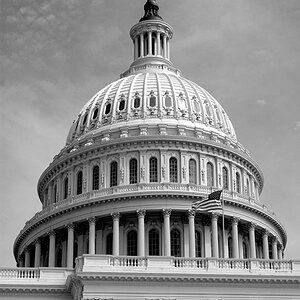
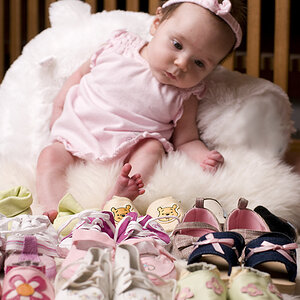
![[No title]](/data/xfmg/thumbnail/32/32701-51bacbc6ea9d40683123c14f053d4742.jpg?1619735603)
